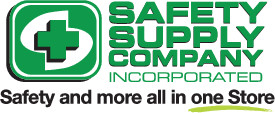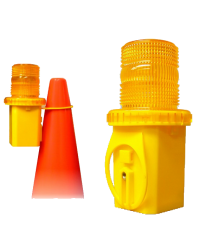Safety Tips for Commercial Drivers
Article Images:

It takes a lot of skill to drive trucks, haulers, and buses. Drivers of these vehicles spend the majority of their day (and some nights) on the road, which can be both tiring and stressful as they traverse traffic.
As with any job, workplace safety should be paramount, and this rule of thumb applies when your workplace is a 300-ton moving vehicle, that has a higher rate of encountering unexpected situations.
Below are some tips to help your truckers stay safe on the job:
Maintain the vehicles properly.
Safety begins before your drivers even get into the vehicle. Keep a proper servicing schedule, address issues promptly, and never drive a vehicle that has an issue that can present a risk to your driver and other motorists.
Wear your seat belt.
It’s not only about safety, it’s also the law. In the unlikely event of an accident, seat belts reduce the risk of serious injury; and for truck drivers in the large cabin this can be a lifesaving function.
Drivers should practice defensive driving.
This form of driving encourages drivers to be on the lookout for potential hazards on the road, be mindful of their blind spots, drive with enough space between themselves and the cars in front of them, and brake early.
Drivers should avoid being distracted while driving.
Drivers can minimize their distractions by not taking passengers and not using their cellular phones while driving.
Adhere to the speed limits and rules of the road.
For drivers of massive vehicles, it’s especially important to adhere to the rules to minimize the potential risk hazard for themselves and others on the road.
Plan your route.
This can include listening out for traffic news, avoiding areas with construction, ‘tight’ fit for the vehicle, and being mindful of the weather.
Drivers should never do drugs or alcohol, especially before or during the job.
Driving while impaired invites danger for themselves and others, and is frankly, just plain irresponsible.
Drivers should get plenty of rest.
Never let your driver get behind the wheel tired, particularly, at night. When drivers are tired, their responses are slow, and they are operating at a diminished capacity. Ensure that your drivers take frequent breaks and are well-rested.
Drivers should always use their signals.
This allows other drivers on the road to be guided accordingly, minimizes the risk of collisions, and be properly informed as they drive behind or attempt to maneuver around the vehicle.
Keep a fire extinguisher and first aid kit onboard the vehicle, in case of emergency.
Recently Viewed Items
Blog Articles
Check out more articles
PPE: The Unspoken Love Language
Wearing PPE: Protecting Your Present and Securing Your Future
View MoreTips to Improve Safety While Working With Heavy-Duty Mobile Equipment
Improving the safety of ground personnel working around mobile equipment, such as forklifts, excavators, etc., requires a combination of engineering controls, administrative measures, and behaviora
View MoreWhy You Should Service Your Safety Equipment
Safety equipment serves as the frontline defense against workplace hazards, ensuring the well-being of employees and minimizing risks.
View More




